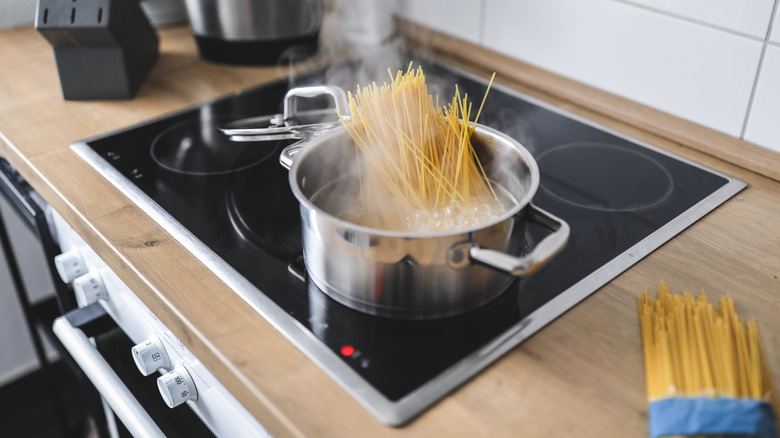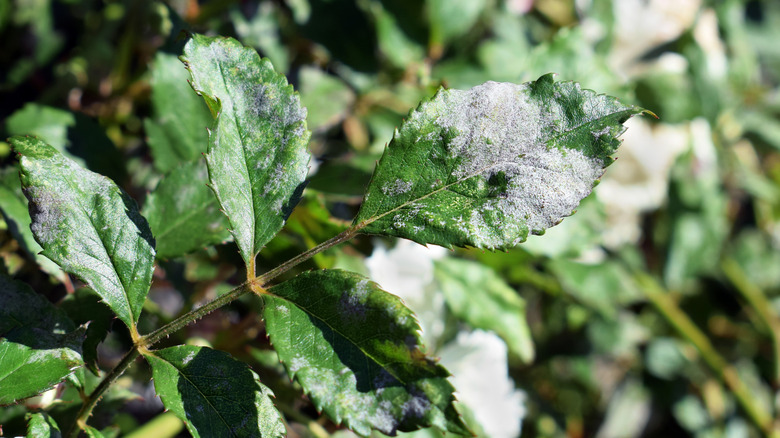The Downside Of Using Cooking Water In The Garden That You Should Consider
If you live in a drought-prone region, you're probably accustomed to water restriction measures like installing low-flow toilets or using water twice. Droughts are becoming more common and prolonged due to the effects of global climate change, so it's worth being aware of how you can conserve water. Reusing water is especially useful for gardeners, as you can utilize untreated "gray" waste water from household sources like showers and washing machines to water plants. However, you should avoid using gray water on edible crops. You may have also heard that water used for washing vegetables or boiling pasta is worth saving for your garden, but some plants don't like leftover cooking water, especially if you heavily salt it.
There are undoubtedly benefits to reusing your cooking water in the garden. Starchy pasta or potato water can increase microbial activity in the soil. As for salt, while a little bit of it is useful for plant growth and some plants are particularly salt tolerant, too much salt in the soil will absorb water before it can be taken in by the roots of growing flora. You run the risk of salty pasta water exacerbating the drought-like conditions of dry soil more than helping your gardening endeavors, and in worst-case scenarios, it can lead to salt toxicity.
Using cooking water in the garden might lead to mold and other concerns
Salted water isn't the only kind of cooking leftover that might have downsides for your garden. As mentioned, starchy water can be a great benefit to the soil, especially as a source of carbon for plant growth. But regularly drenching your garden in old potato water might lead to the development of mold. Its growth on plant life and crops is more than just unsightly; mold consumes the nutrients off plants, and certain species of mold might be toxic to the animals passing by to eat them. If the garden plants you're watering are potted, there can be ways to rescue moldy potting soil, but it's not always a worthwhile venture.
If you're using emulsified substances that mix oil and water like vinaigrette dressing, you'll also want to be careful about dumping the leftovers in compost. Used oils can contaminate the soil in your garden, leading to soil compaction and the death of beneficial critters like earthworms. To make matters worse, larger amounts of fat, oil, and grease can be a major pollutant by blocking up stormwater drains and septic systems. This includes the grease left over by cooking meat products such as bacon (though there are ways you can properly discard bacon fat to save your pipes), which attracts animals to your garden or compost. If you are going to reuse cooking water in your garden, make sure it's as plain as you can manage to avoid any unforeseen problems with soil additives.

